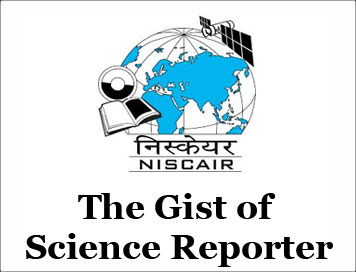(GIST OF SCIENCE REPORTER) One Day One Genome Initiative
(GIST OF SCIENCE REPORTER) One Day One Genome Initiative
(DECEMBER-2024)
One Day One Genome Initiative
Department of Biotechnology (DBT) and Biotechnology Research and Innovation Council (BRIC) introduces the One Day One Genome initiative to showcase the enormous microbial potential of India.
About One Day One Genome Initiatives
-
The initiative highlights the unique bacterial species found in our country and emphasises their critical roles in environment, agriculture and human health.
-
It aims to release a fully annotated bacteriological genome isolated in the country freely available to the public.
-
In this initiative an annotated microbial genome will be publicly released every day to make microbial genomics data more accessible to researchers and directly benefit the community.
-
The unique features of these microbes and their genomes will be highlighted.
-
Common people will get the benefits of sophisticated technologies and cutting-edge genomic research. It will bring groundbreaking transformation in environmental, agricultural and health research.
-
This initiative is coordinated by BRIC-National Institute of Biomedical Genomics (BRIC-NIBMG).
Significance of Microorganisms
-
Microorganisms are crucial for our ecosystem.
-
They play an important role in all biogeochemical cycles, soil formation, mineral purification, degradation of organic wastes and toxic pollutants along with methane production.
-
Cumulatively they help to maintain the homeostasis in our planet.
-
In agriculture, they help in nutrient cycling, nitrogen fixation, maintaining soil fertility, controlling pest and weeds and stress responses.
-
Microorganisms are symbiotically associated with plants and help them in nutrient and water uptake.
-
They are an indispensable part of the human body. There are many more microbial cells than the number of human cells in a human body. They are essential for our digestion, immunity and even mental health.
-
All infectious diseases are mainly caused by pathogenic microorganisms. On the other hand, non-pathogenic microorganisms are indispensable for our defense against infectious diseases.
Genome Sequencing
-
Genome sequencing involves determining the complete DNA sequence of an organism’s genome, a method that provides important insights into the genetic basis of disease, evolutionary relationships between species, and the function of genes and non-coding regions of the genome.
-
Genome sequencing will allow the visualization of the hidden potential of the microbial world to the community at large.
-
Sequencing data can be analyzed to identify the genome encoded capacities for various important enzymes, antimicrobial resistance, bio active compounds etc.
-
Research in this field will lead to the benefit of better protection and management of our environment, development in agriculture and improvement in human health.
CLICK HERE TO DOWNLOAD FULL PDF
CLICK HERE TO DOWNLOAD UPSC E-BOOKS
Study Material for UPSC General Studies Pre Cum Mains
Get The Gist 1 Year Subscription Online
Click Here to Download More Free Sample Material
<<Go Back To Main Page
Courtesy: Science Reporter



